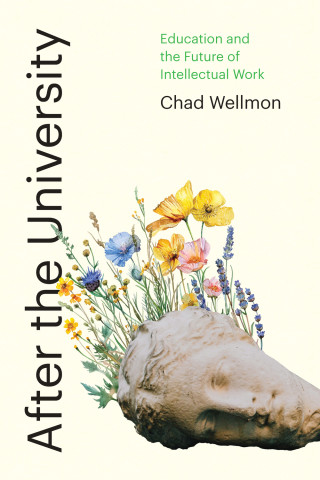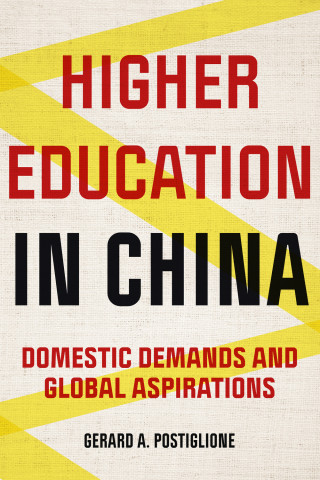
Reviews
This book is a treasure trove of innovative institutional examples and forward thinking about ways to increase the relevance and value of liberal education for both students and society.
The authors encourage colleges to imagine radically diverse ways to inspire students to recognize the value of liberal education for meaningful action in the world.
Redesigning Liberal Education builds its collective case for a new twenty-first-century liberal education. The key here is design: deliberate, iterative, focused on needs and goals. The authors show how to create learning conditions that help all learners develop flexible dispositions that address the real challenges of the twenty-first century.
A wide-ranging exploration of institutional and learning innovations, this is an illuminating study of how educators are transforming liberal education today. Even more importantly, it offers valuable perspectives on the future as liberal education must continue to evolve to meet the needs of learners in a rapidly changing world.
Redesigning Liberal Education explores the urgent question of how to give twenty-first-century students the sort of holistic, transformative learning they need and deserve. At once radically innovative and deeply grounded in the values of liberal learning, the collected case studies and essays offer a provocative, inspiring guide to the best possibilities of change.
Book Details
Foreword, by Michael S. Roth
Acknowledgments
Introduction. A Radical Vision for Redesigning Liberal Education
William Moner, Phillip Motley, and Rebecca Pope-Ruark
Part I. Case Studies
Chapter 1. Problem
Foreword, by Michael S. Roth
Acknowledgments
Introduction. A Radical Vision for Redesigning Liberal Education
William Moner, Phillip Motley, and Rebecca Pope-Ruark
Part I. Case Studies
Chapter 1. Problem-Focused Liberal Education in a First-Year Learning Community at the University of Wisconsin–Green Bay
Denise S. Bartell, Alison K. Staudinger, and David J. Voelker
Chapter 2. Attending to Local Context, Culture, and Language at Florida International University
Isis Artze-Vega, Phillip M. Carter, and Heather Russell
Chapter 3. The Experiential Liberal Arts: An Integrative Model for Twenty-First-Century Education at Northeastern University
Chris W. Gallagher and Uta G. Poiger
Chapter 4. Creating Connections: An Intentional, Integrated Liberal Education at Connecticut College
Michael Reder and Ann Schenk
Chapter 5. Building a Developmental, Interdisciplinary General Education Curriculum for the Future: Foundations in the Liberal Arts at Rollins College
Emily Russell, Susan Rundell Singer, and Toni Strollo Holbrook
Chapter 6. Exploring the Borderlands: Using Interdisciplinarity to Build Civic Literacy at the College of the Holy Cross
Laurie Ann Britt-Smith
Chapter 7. Redesigning Learning through Multidisciplinary Teaching: Voices from a Sophomore Core Experience at Lasell University
Michael J. Daley, Dennis A. Frey Jr., and Catherine Zeek
Chapter 8. Intergenerational Partnerships to Support Liberal Learning Goals at Brown University
Mary C. Wright, Maud S. Mandel, Jessica Metzler, and Christina Smith
Chapter 9. The Design Thinking Initiative at Smith College
Borjana Mikic
Chapter 10. Immersive Learning in the Studio for Social Innovation at Elon University
Rebecca Pope-Ruark, William Moner, and Phillip Motley
Chapter 11. Failing Forward: Writing, Design, and Organic Curricular Change at Georgetown University
Maggie Debelius, Sherry Lee Linkon, and Matthew Pavesich
Chapter 12. Educating Business Leaders for a Better World at George Mason University
Lisa Gring-Pemble, Anne M. Magro, and Jacquelyn Dively Brown
Chapter 13. Educating for Global Civic Participation and a Career: German Studies in the Twenty-First Century at Elon University
Scott Windham, Andrea A. Sinn, Kristin Lange, Derek Lackaff, Anthony Hatcher, Evan A. Gatti, and Janelle Papay Decato
Chapter 14. Pursuing Major Passions: Innovative Minors That Blend Professional Skills and Liberal Education Values for Civic Pursuits at Susquehanna University
John Bodinger de Uriarte and Betsy Verhoeven
Part II. Visions for the Future of Liberal Education
Chapter 15. The Future Has Gone Soft on Skills: Why Campuses Should Be Working Harder to Cement Personal and Social Development with Learning
Ashley Finley
Chapter 16. Can We Liberate Liberal Education?
Randy Bass
Chapter 17. Aligning Liberal Education for an Age of Inequality
William M. Sullivan
Chapter 18. Slow: Liberal Learning for and in a Fast-Paced World
Nancy L. Chick and Peter Felten
Chapter 19. Shifting Paradigms: College Admissions as a Lever for Systemic Change in Liberal Education
Kristína Moss Gudrún Gunnarsdóttir and Meredith Twombly
Chapter 20. Scholartistry: Creativity and the Future of the Liberal Arts
Michael Shanks and Connie Svabo
Afterword. The Age of Connectedness
Leo Lambert
Appendix 1
Appendix 2
Contributors
Index






